
Celebrating the New Year is an event filled with mysticism and magic, traditions and customs … From year to year we all make a wish at midnight, eat Olivier and drink champagne. But why not try something new when celebrating a holiday at home? Then the coming year will surely bring pleasant changes..
1. Pie of happiness for the most toothy
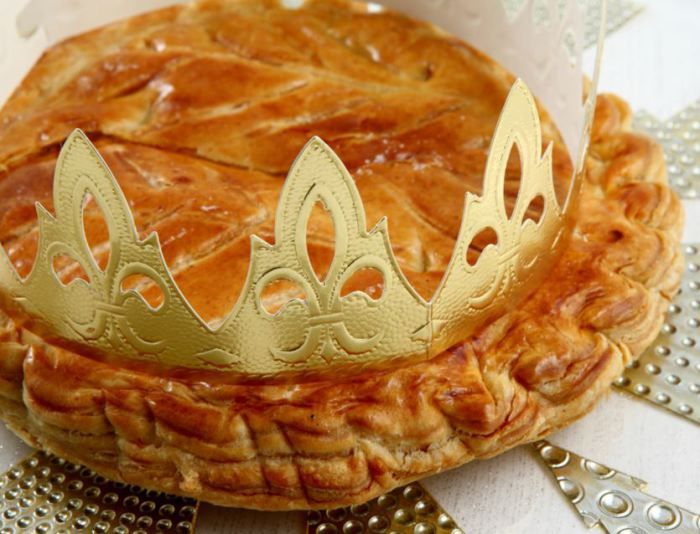
A wonderful tradition for a home celebration that exists in many European countries is to bake a cake with a surprise inside. In France, a figurine of a king is hidden in baked goods, in the Netherlands – a bean or a pea, in Portugal – a medal. A guest who gets such a surprise becomes the king of the evening, or it is believed that the coming year will bring him maximum happiness and good luck. If the owners do not want to risk the safety of the guests’ teeth, then a solid surprise can be replaced with a paper crown..
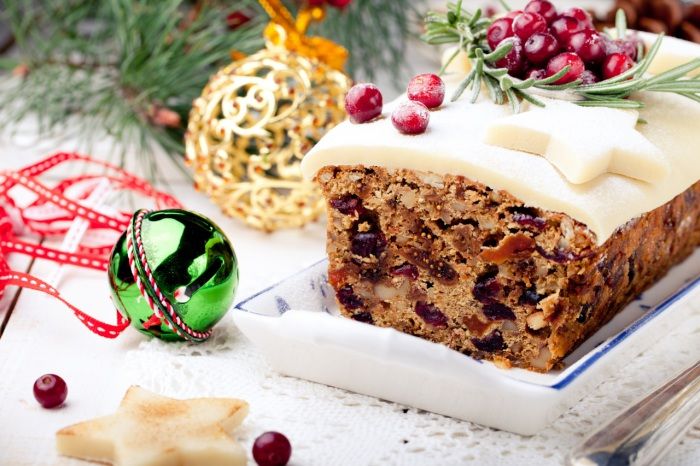
2. Joy for the first male guest
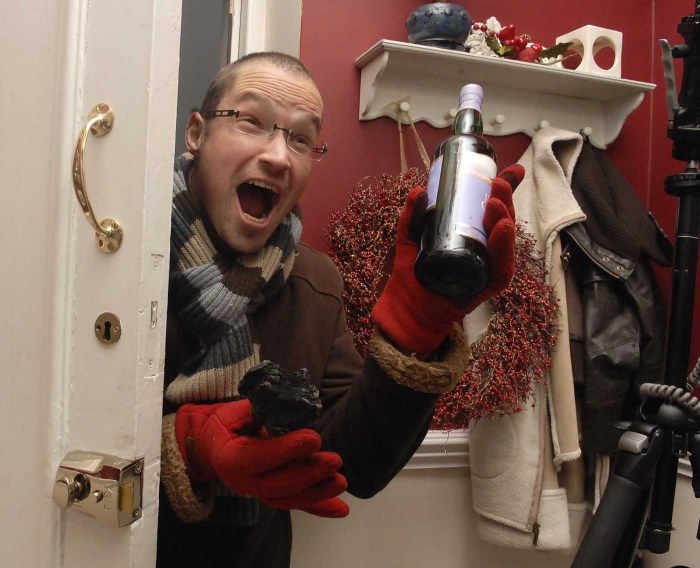
In England and Scotland, it is customary that the first guest in the New Year should be an attractive dark-haired man. Moreover, he should not cross the threshold empty-handed: it is desirable that in his pockets there was a treat, including whiskey. In turn, the owners of the house should thank the first guest with a gift or delicious food. So if there is a sociable brunette in your environment, then be sure to invite him to visit. If this was not found, but the owner of the house is dark-haired, then he can play the role of the first one to cross the threshold.
3. There is never too much red

Red is not only a traditional color for New Year’s holidays, but also a symbol of the coming year of the Rooster. Therefore, the Italian custom of celebrating the New Year in red is especially relevant now. If a red outfit is not your idea of the perfect holiday look, then wear red underwear or socks. At the very least, decorate your home with red décor. This energetic and cheerful color is great for cheering..
4. New Year’s feast: light version
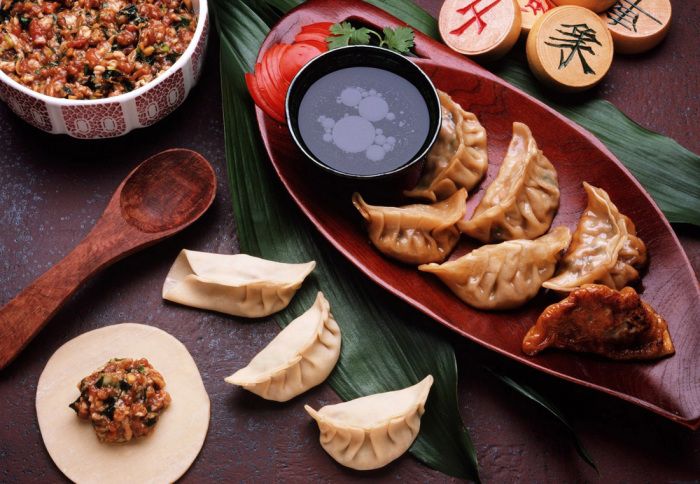
The Chinese believe that using knives at the New Year’s table is a direct way to cut off happiness. Therefore, they eat without these sharp cutlery. This interesting tradition will help revise the traditional New Year’s menu. After all, hearty dishes that need to be cut will have to be replaced with light snacks. Why not change the focus of your celebration from focused food intake to exciting entertainment?
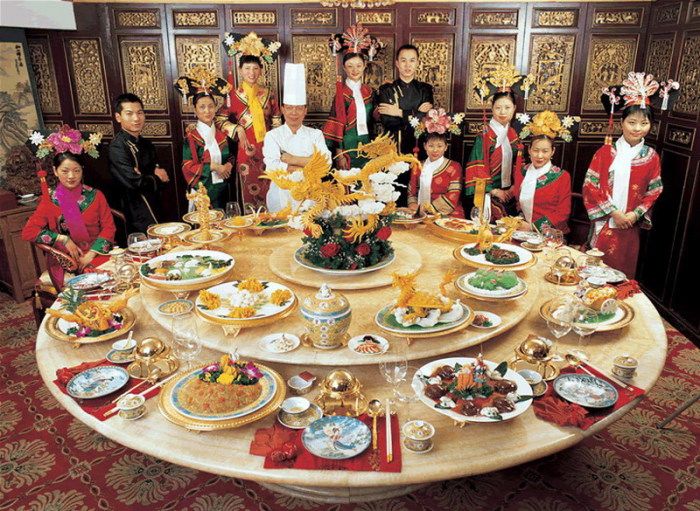
5. All people are brothers
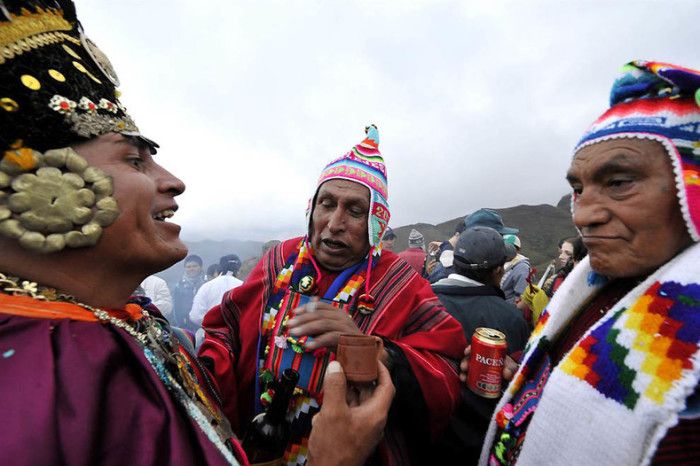
It would definitely be useful to introduce one of the Chilean New Year traditions. According to her, on the eve of the celebrations, it is strictly forbidden to quarrel and sort things out with everyone around, especially with loved ones. On the contrary, Chileans try to be as welcoming and friendly as possible. Great mood for the holidays guaranteed.
6. Burn the enemy
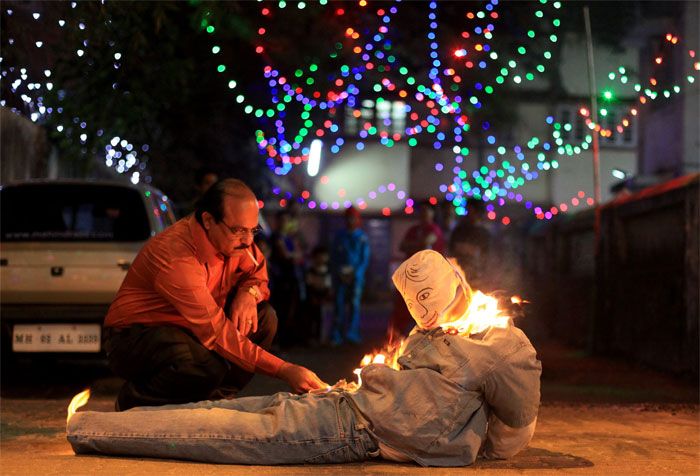
Residents of Ecuador on New Year’s Eve are actively getting rid of the accumulated negative emotions. At the same time, they do not quarrel with each other, but burn a straw effigy. Ecuadorians make a big figure and give her the name of a bored person. Then the scarecrow is beaten with a belt and burned, also jumping over the burning flame. If this way of saying goodbye to the negative seems too radical, burn the pieces of paper on a silver platter, on which are written not the most pleasant phenomena and moments of the outgoing year.
7. Fruit to smithereens
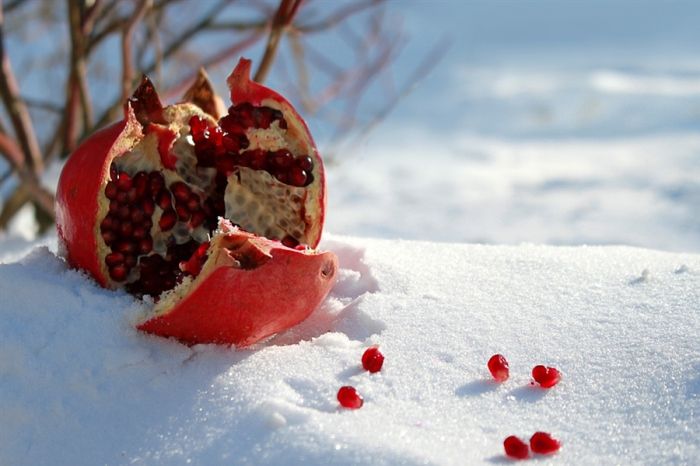
Pomegranate is not the worst fruit, but after getting acquainted with the Greek New Year traditions, just such a mistaken opinion can develop. On a festive night, the owner of the house must smash a grenade against the wall. The further the grains scatter and the more there are, the more successful the coming year will be. We recommend that residents of apartment buildings smash a grenade on the street. After all, a year that began with wall cleaning and cleaning is unlikely to be very pleasant.
8. Loud promises instead of quiet desires

In Sweden, it is established that New Year’s Eve is filled to the maximum with a variety of loud sounds. Therefore, the Swedes stock up on pipes, rattles and whistles. With these deafening sounds, they promise to change something in their life – for example, find a better job or get married. And if you don’t want to change anything, then the Swedes just kiss their loved ones.
9. Eternal love for New Year’s Eve

The Spaniards came up with a great way to improve the mood for those who celebrate the New Year without a couple. On a festive evening, the names of all those present are written on a piece of paper. The girls draw out the names of the guys, and until the end of the New Year’s holidays, the newly-made couple must play the role of lovers. The inhabitants of Bulgaria do not lag behind the Spaniards in their love. On New Year’s Eve, the lights in the house are turned off, and all those present for three minutes kiss with someone who comes to hand. Then the light is turned on, and those present ceremoniously begin the festive feast.
10. New Year – with vivid memories

In the Netherlands and Belgium, no less attention is paid to the first day of the new year than to the night preceding it. On this day, it is customary to put on the new and most beautiful clothes, have fun and spend time with loved ones. Europeans believe that how you spend the first day of the year will be the same for all those that follow..
11. Bell ringing
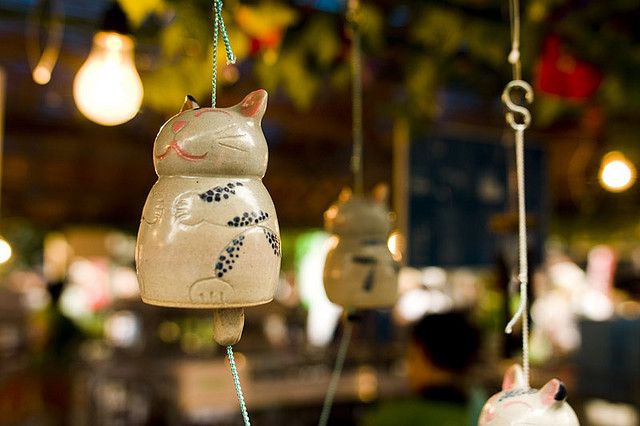
The chimes for the Japanese replace the bells. Of course, it is unlikely that there are real big bells in the house that ring on New Year’s Eve in the Land of the Rising Sun. In Japan, it is believed that after the 108th bell is struck, all the negativity accumulated over the year is cleared. Why not jingle a little bell? If cleansing does not come, then the mood will improve for sure.
12. The grape of desires
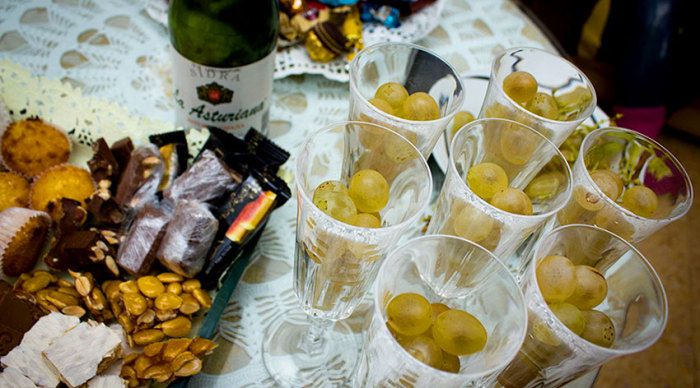
For the cherished wish to come true, the Spaniards must have time to eat 12 grapes before the midnight clock strikes. This tradition is as strong as our custom of drinking a glass of champagne to the chimes. Why not try replacing the grape drink with grapes themselves?
When the script for celebrating the New Year is thought out, it is time to take care of decorating the house. for example, making a festive decor with children.






